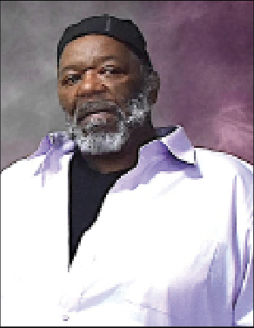‘Science’ of conservative thinking
Published 11:01 pm Friday, April 27, 2012
“I often think it’s comical
/ How Nature always does contrive
/ That every boy and every gal
/ That’s born into the world alive
/ Is either a little Liberal
/ Or else a little Conservative!”
— from “Iolanthe” by Gilbert and Sullivan
Here’s the latest alarming dispatch from the frontiers of knowledge: Scientists say that Republicanism may be a congenital problem. Well, not scientists, exactly, but journalist Chris Mooney, whose latest treatise, “The Republican Brain: The Science of Why They Deny Science — and Reality,” has got suggestible Democratic brains all atwitter.
Explaining his findings in Mother Jones magazine, Mooney writes that, bewildered by right-wing irrationality, he found it “impossible to ignore a mounting body of evidence — from political science, social psychology, evolutionary psychology, cognitive neuroscience, and genetics — that points to a key conclusion. Political conservatives seem to be very different from political liberals at the level of psychology and personality.”
Wow! You think? Almost needless to say, the professors who study these things credit liberals with personality traits tending to make one popular at say, an art gallery cocktail party, while conservatives are made of sterner stuff. “The evidence here is quite strong,” Mooney insists. “[L]iberals tend to be more open, flexible, curious and nuanced — and conservatives tend to be more closed, fixed and certain in their views.”
He appears not to notice that these are loaded terms.
So here’s my first question: How do evolutionary psychologists explain why such different human types evolved in Mississippi, say, as opposed to Massachusetts? And if all the creative, intuitive types inhabit New England, then how come Mississippi (Southern chauvinism alert) has produced far more than its share of great writers and musicians over the years?
The answer, of course, is that psychologists make no such claim. How could they? No evidence exists that would assign different personality types to different parts of the country. (Much less to different countries, but hold that thought.) It follows that such insights as Mooney produces about the cognitive styles of Republicans vs. Democrats are far less useful than he thinks in explaining American political dynamics.
Debating Mooney on his blog, Kevin Drum makes a related objection, observing that “temperament is universal, but Republicans are Americans. And it’s Republicans who deny global warming and evolution. European conservatives don’t. In fact, as near as I can tell, European conservatives don’t generally hold anti-science views any more strongly than European progressives.”
Of course, British Tories don’t call for abolishing the National Health Service, either. Across international borders, words like “conservative” and “liberal” are so broadly defined as to be practically meaningless. Context is all.
In the old Soviet Union, remember, it was hardcore Marxists who militantly opposed decadent “Western” biological science. The Nazis, of course, had their own brand of racist pseudo-science. Authoritarian personalities are attracted to authoritarian ideas. Human beings tend toward tribalism. This is not news.
Neither of these examples, however, has anything to do with contemporary American politics. Broadly speaking, we’re pretty much all classical liberals in the United States — almost universally assenting to the U.S. Constitution, to First Amendment guarantees of free speech and religious liberty, to one-man-one-vote, etc.
So while it’s noteworthy to learn from Mooney that a study in American Sociological Review “finds that while overall trust in science has been relatively stable since 1974, among self-identified conservatives it is at an all-time low,” it’s also less alarming than it might appear. What the data seem to reflect isn’t a broad change in public opinion, but the growing concentration of churchgoing Evangelicals within the GOP — particularly in the South and rural Midwest. Republicanism is a regional rather than a psychological phenomenon.
Fundamentalist Christians have always rejected evolutionary science, but they haven’t always called themselves “conservatives.” Even at that, most don’t reject evolution altogether, only what they mistakenly believe to be its atheistic implications. Sure, they want “intelligent design” taught in Tennessee public schools, but there’s no militant movement to shut down college biology programs or the University of Tennessee Med School.
It’s much the same with climate science. Opposition isn’t obscurantist, merely mistaken. Mention global warming and you’ll get a barrage of emails from people arguing that the temperature data’s been misinterpreted, that the sun’s getting warmer, or that grapes once grew in Greenland. Politicians and TV performers funded by coal and oil interests who promote denialism have persuaded many that anthropogenic warming theory’s based on scientific errors they’re eager to see corrected.
It’s my impression that recent crazy weather events may be changing quite a few minds.
Mooney thinks that liberals resistant to his views just can’t handle the truth. Refusing to recognize the irrational, tribal aspects of political identity, he contends, “leads [liberals] to a place that terrifies them: an anti-Enlightenment world in which evidence and argument don’t work to change people’s minds.”
So I suppose my question would be: When have they ever?
(Arkansas Times columnist Gene Lyons can be reached at eugenelyons2@yahoo.com.)





